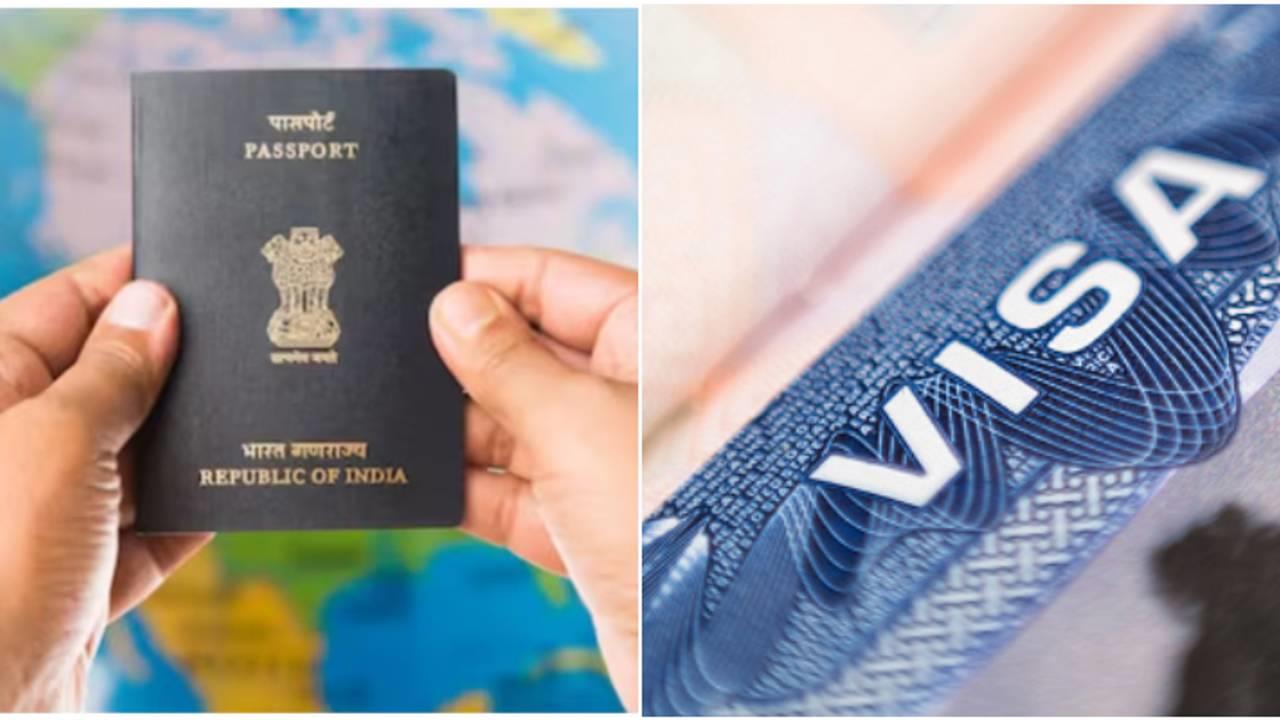H-1B Visa Chaos 2025: What It Means For Skilled Workers And The American Dream
For years, the H-1B visa system symbolized opportunity - a bridge between global talent and the American dream. In 2025, that bridge is cracking. What started as a quiet tightening of immigration rules has snowballed into a crisis that's upending lives, careers, and futures.
For thousands of skilled workers - especially from India - the system once known for fueling Silicon Valley and biotech breakthroughs is now leaving them with unanswered questions, delayed decisions, and shrinking hope.
In-Person Interviews Return, Stirring Anxiety
In a move that's rattled the immigrant community, the U.S. State Department recently announced that mandatory in-person interviews for H-1B applicants will resume from September 2025. The decision ends a pandemic-era waiver that had helped keep wait times in check.
The impact is immediate and personal. In cities like Mumbai and Hyderabad, already backlogged consulates are bracing for a fresh wave of appointments. For applicants, this means months of waiting, missed job start dates, and employers rethinking their hiring plans.
From Graduation to Uncertainty
For international students graduating from U.S. universities, the stakes couldn't be higher.
After investing years - and often life savings - into an American education, many find themselves stuck in legal limbo. With the H-1B process now more uncertain than ever, the pathway from“study here, work here” is breaking down. OPT periods expire. Sponsorships fall through. And talented individuals are left with no option but to pack up and leave.
“I followed every rule, got my degree, landed a job - and now I'm stuck in this system that feels stacked against me,” said Priya, a data scientist from Bangalore who studied in California.
When Immigration Becomes Politics
The turmoil isn't just bureaucratic - it's political.
Former Trump aide Steve Bannon recently labeled the H-1B program a“scam.” Around the same time, a U.S. Congresswoman ignited outrage by singling out Indian visa holders in social media posts suggesting they were taking away American jobs.
Although many across party lines condemned the remarks, the damage was done. The H-1B visa has become a lightning rod in America's cultural and political battles, with real consequences for those caught in the crossfire.
A Quiet Exit
Disheartened by uncertainty, a growing number of skilled workers are choosing to walk away from the U.S. altogether. Many are moving to countries like Canada, the UK, or back to India, where immigration systems are seen as more transparent and welcoming.
Some are being denied visas over technicalities, administrative delays, or even flagged for things like past social media posts - a rise in what's being dubbed“soft rejections”. No official reason. No appeal. Just silence.
Few Doors Left Open
Alternatives like the O-1 visa or university-linked positions exist, but they're not scalable. For most applicants, the options are narrow and hope is running thin.
And yet, there's no replacement in sight. No new policy. No reform package. Just gridlock and growing fear that the door is quietly closing on skilled immigration.
India's Muted Response
Despite the disproportionate impact on Indian nationals, who make up more than 70% of H-1B recipients, the Indian government has opted for quiet diplomacy. While behind-the-scenes discussions may be underway, no formal protest or strong public stance has been taken - a silence that's left many feeling abandoned.
What's at Stake
Experts warn this isn't just about immigration - it's about the future of American innovation.
“The H-1B system helped build Google, drive biotech breakthroughs, and fuel the tech economy,” said a senior immigration analyst.“If we gut it without a plan, we risk surrendering our global edge.”
Universities may struggle to attract top talent. Startups could lose out on world-class engineers. And corporations may be forced to look elsewhere for brainpower.
Final Boarding Call for the American Dream
Every delayed decision, every quiet rejection, sends a message - and it's not one of welcome.
If no reforms come, a generation of skilled, ambitious professionals may give up on the U.S.. And with them, the very pipeline that helped build the nation's innovation economy could dry up.
The dream of America as the place where talent thrives is still alive - but for many, it's fading fast.
Legal Disclaimer:
MENAFN provides the
information “as is” without warranty of any kind. We do not accept
any responsibility or liability for the accuracy, content, images,
videos, licenses, completeness, legality, or reliability of the information
contained in this article. If you have any complaints or copyright
issues related to this article, kindly contact the provider above.
Most popular stories
Market Research

- Bitcoin Adoption On Sui Accelerates As Threshold Network And Sui Launch Phase 2 Of Tbtc Integration
- Meme Coin Little Pepe Raises Above $24M In Presale With Over 39,000 Holders
- Schoenherr Welcomes Top-Tier CEE English Law Debt Finance Team
- Japan Buy Now Pay Later Market Size To Surpass USD 145.5 Billion By 2033 CAGR Of 22.23%
- United States Insulin Pumps Market Forecast On Share & Demand Mapping 20252033
- Mediafuse Joins Google For Startups Cloud Program To Scale AI-Driven, Industry-Focused PR Distribution



















Comments
No comment